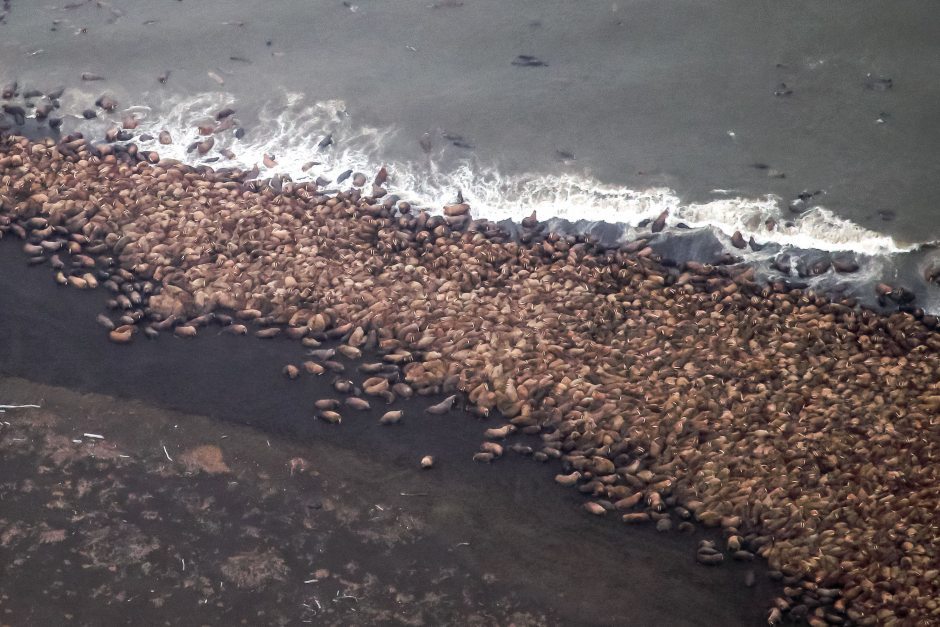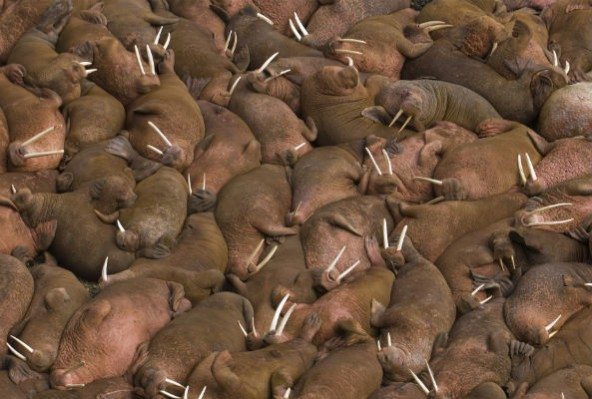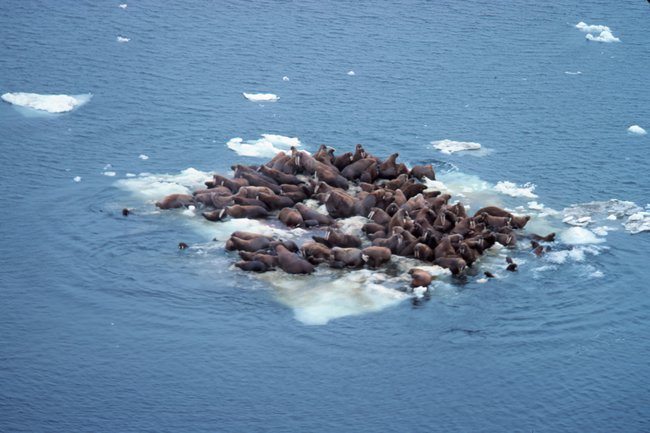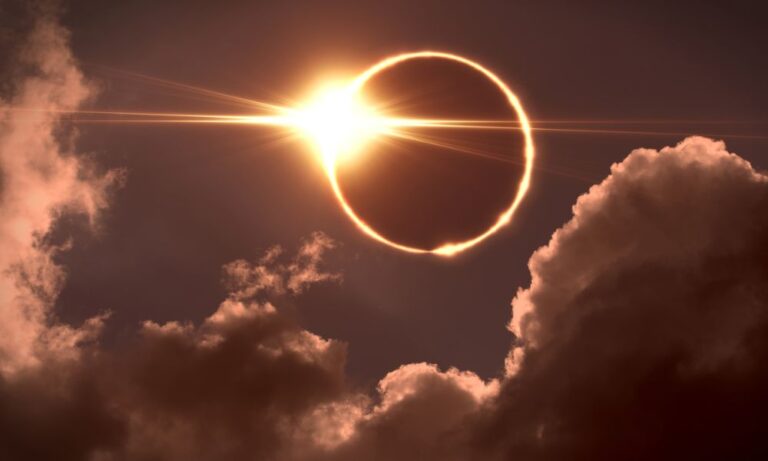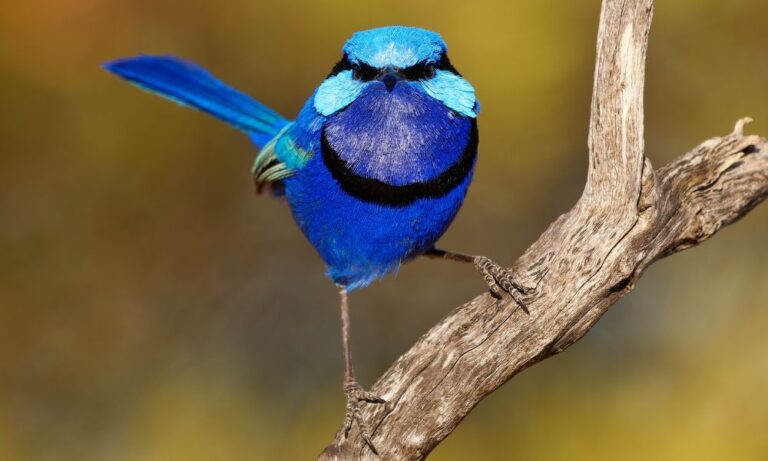The shocking images have made international headlines over the last few days.
The phenomenon is believed to have been caused by the melting of arctic ice from climate-change.
Initial aerial surveillance had spotted just 1,500 of the tusked animals on the beach, but in recent days this number has exploded.
“Our best estimate is almost a 24-fold increase,” said Megan Ferguson of the Aerial Surveys of Arctic Marine Mammals.
The walruses “are hauling out on land in a spectacle that has become all too common in six of the last eight years as a consequence of climate-induced warming”, the US Geological Survey (USGS) said in a statement.
The extraordinary sighting is the biggest known exodus of walruses to dry land to date. until 2007, it was unheard of for the tusked animals to leave the ice for such a prolonged period of time.
“Those animals have essentially run out of offshore sea ice, and have no other choice but to come ashore,” said Chadwick Jay, a research ecologist in Alaska with the US Geological Survey.
Sadly, breaching on land means the young walruses are more susceptible to death by trampling, because of stampedes and competition for food, the USGS added, explaining that the animals would normally haul out on ice near rich feeding grounds.
But summer sea ice is retreating far north or the continental shelf waters of the Chukchi Sea, in US and Russian waters.
This is a condition that “did not occur a decade ago” experts have said as the summer sea ice fell to its sixth lowest in the satellite record.
“To keep up with their normal resting periods between feeding bouts to the seafloor, walruses have simply hauled out onto shore,” they added.
But walruses aren’t the only species retreating to the same stretch of coastline.
Brown bears have also been spotted in numbers greater than previously seen.
Conversely, gray whales, who have been spotted swimming into the area since the 1990’s have disappeared.
While were not experts, it’s safe to say that migration patterns are out of whack. Perhaps mother nature is trying to tell us that something is not right?



